People
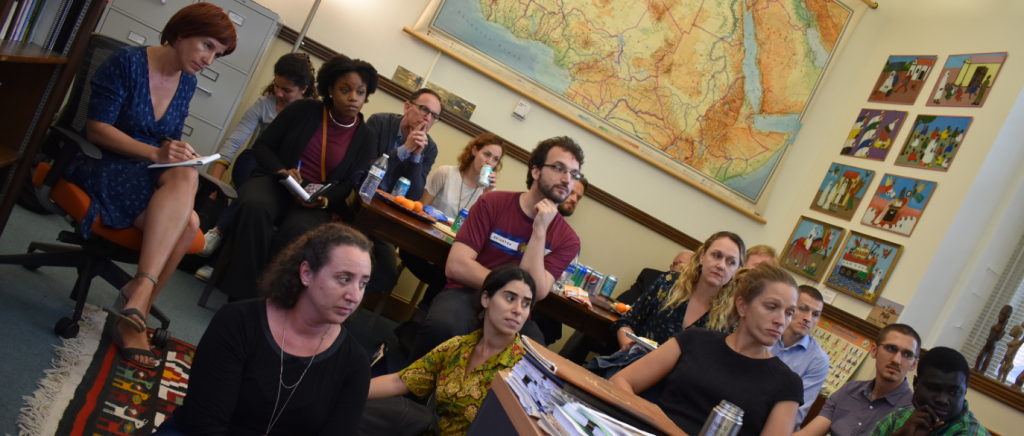
Our Team
Research Associates
Staff
Our Network
Institutional Partners
Our Team
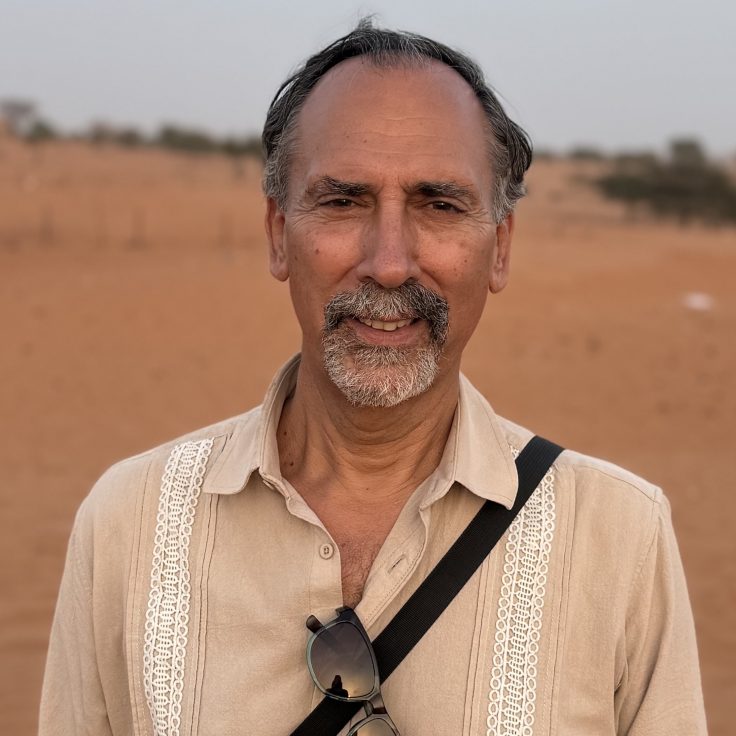 Leonardo VillalónEmail - UF faculty page | Leonardo A. Villalón, coordinator of the Sahel Research Group, is Professor of Political Science and African Studies at the University of Florida. He has held several administrative posts at the univeristy, including Dean of the International Center and Associate Provost (2014-2022) and Director of the Center for African Studies (2002-2011). Villalón holds a Ph.D. from the University of Texas at Austin, and degrees from the Institut d’Etudes Politiques in Paris, the School of Advanced International Studies (SAIS) of the Johns Hopkins University, and Louisiana State University. He has carried out research in the six countries of the Sahel (Senegal, Mali, Niger, Burkina Faso, Mauritania, and Chad), on such topics as religion and democratization, electoral issues, education, state resilience and political stability, and the impact of climate change. His research has been supported by Fulbright and Carnegie Scholars awards, and by grants from the US State Department, the UK Department for International Development (DfID), the US DOD Minerva Initiative, and the Sahel and West Africa Club of the OECD. He has published numerous works on the Sahel, and is editor of the Oxford Handbook of the African Sahel |
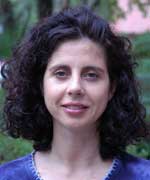 Renata SerraEmail - UF faculty page | Renata Serra is Instructional Professor at the Center for African Studies at the University of Florida, core faculty member in the Master in Sustainable Development Practice program and Lead researcher for the Enabling Environment team within the USAID Feed the Future Livestock Systems Innovation Lab at UF, co-leading both the Policy and Gender Teams. An economist by training, she earned her PhD from Cambridge University (UK) in 1997. Her expertise focuses on agricultural and livestock policies, the political economy of reforms, gender issues and household decision-making, child labor, and social capital, with particular attention to countries in Franco-phone West Africa. Dr. Serra has done consultancy work for Catholic Relief Services, the International Cocoa Institute, Oxfam UK, DFID, SIDA, the World Bank, and Save the Children UK. She is currently co-PI for the LIVT project. |
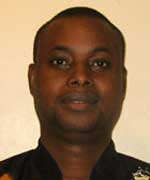 Abdoulaye KaneEmail - UF faculty page | Abdoulaye Kane holds a joint position between the Center for African Studies and the Department of Anthropology. He received his Ph.D. in Sociology in 2001 from the Amsterdam School for Social Science Research, University of Amsterdam, The Netherlands. Dr. Kane specializes in international migration and transnationalism with an emphasis on Senegalese migrants in Europe and in the United States. He has recently completed a book manuscript on the practice of transnationalism by the Haalpulaar migrants of the Senegal River Valley. He is the co-editor, with Todd Leedy, of "African Migrations, Patterns and Perspective" (Indiana University Press, 2013). He also co-edited, with Hansjoerg Dilder, and Stacey Langwick, "Medicine, Mobility, and Power in Global Africa, Transnational Health and Healing" (Indiana University Press 2012). He is currently working on a book manuscript exploring the building of Tijani transnational religious circuits connecting religious cities in Senegal, Fez, and satellite communities in France. |
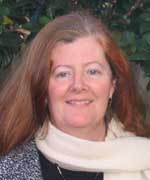 Fiona Mc LaughlinEmail - UF faculty page | Fiona Mc Laughlin is Professor of Linguistics and African Languages. She specializes in the sociolinguistics of urban language contact in the Sahel, as well as in the phonology and morphology of Seereer, Wolof and Pulaar, three Atlantic (Niger-Congo) languages spoken in Senegal. She has a secondary research interest in Islam and popular culture. Mc Laughlin has a PhD in linguistics from the University of Texas at Austin. She is a former director of the West African Research Center in Dakar and has taught at the Université Abdou Moumouni in Niamey, Niger, and at the Université Gaston Berger in Saint-Louis, Senegal. |
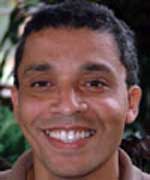 Alioune SowEmail - UF faculty page | Alioune Sow holds a joint appointment in French and African Studies at the University of Florida. He is the Director of the France Florida Research Institute. His research interests include democratic transition and cultural forms in francophone West Africa, focusing especially on memoirs, theater and films in Mali, as well as migration and theater practices in France. His current book project entitled Transitional memoirs, examines the interplay between letters, politics and the cultures of memory in post military Mali and in the Sahel. His articles on confessions and testimonies in democratic Mali, refugee theater in Bamako, political intuition in autobiographies of childhood, Malian cinema and military, Malian television serials and democratic experience, have been published in Critical Interventions, Social Dynamics, African Studies Review, Biography. He has also edited special issues of Cahiers d’Etudes Africaines and Etudes Littéraires Africaines. Vestiges et Vertiges appeared with Artois Presses Université in 2011. Alioune Sow holds a PhD from the Sorbonne. |
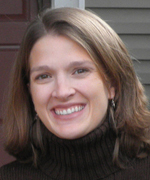 Sarah McKuneEmail - UF faculty page | Sarah McKune is an Associate Professor in the Center for African Studies and in the Department of Environmental and Global Health in the College of Public Health and Health Professions. She holds an MPH from Emory University’s Rollins School of Public Health, and a PhD in Interdisciplinary Ecology from the University of Florida. Prior to work in academia, McKune spent nearly a decade in development, working on various global health projects, including HIV/AIDS, reproductive health, maternal and child health, nutrition, and food security, much of this work occurring with NGOs throughout West Africa. She held a postdoc at UF with the Climate Change, Agriculture, and Food Security program of the CGIAR to improve social equity of program benefits, particularly among women, in Kaffrine, Senegal, as well as sites in Kenya and Nepal. Her research utilizes mixed methodologies, both quantitative and qualitative in nature, and seeks to explain the complex, system dynamics that affect child growth and nutritional outcomes, including factors such as household hygiene and sanitation, livestock ownership, climate change, and gender dynamics within the household. She serves as the Health and Human Nutrition Cross Cutting Theme leader for the USAID Feed the Future Livestock System Innovation Lab (LSIL) at UF, which aims to improve the nutrition of children under five and pregnant and lactating women through increased consumption of animal source foods. She has ongoing work in Senegal, Burkina Faso, and Niger. |
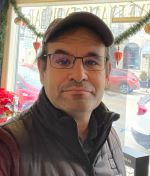 Sebastian ElischerEmail - UF faculty page | Sebastian Elischer is an Associate Professor of African Politics at the University of Florida. Prior to joining UF, Dr Elischer was Assistant Professor of comparative politics at the Leuphana University Lüneburg (Germany) and a research fellow at the German Institute of Global and Area Studies (GIGA) in Hamburg. He holds a PhD in comparative politics from Jacobs University Bremen (Germany), a dual MA from the Free University of Berlin and the George Washington University in Washington DC, and a BA from the University of Wales/Aberystwyth (UK). He is the author of Political Parties in Africa: Ethnicity and Party Formation published by Cambridge University Press in 2013. His articles have appeared in Comparative Politics, Democratization, Review of African Political Economy and similar journals. His second book, Salafism and Political Order in Africa, will be available in August 2021. It examines how Sahelian states and states in East Africa have tried to supervise the influx and the practice of Salafi communities since independence. The project received funding by the Gerda Henkel Foundation, the University of Florida, and the American Political Science Association. |
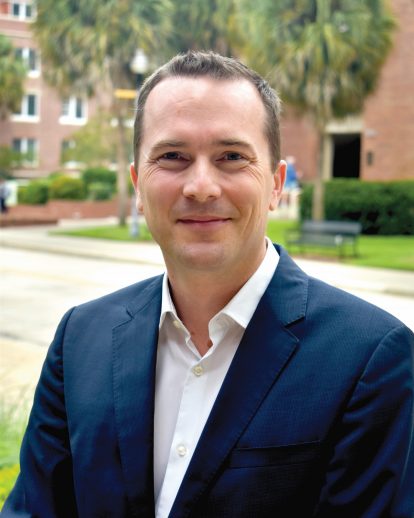 Olivier WaltherEmail - UF faculty page - Personal website | Olivier J. Walther is an Associate Professor in the Department of Geography at the University of Florida and a UF Research Foundation Professor. He received his Ph.D. in Geography from the University of Lausanne in Switzerland. Using social network analysis, his research and teaching has focused on cross-border trade, cross-border cooperation and terrorism in West Africa. Fluent in English and French, Professor Walther spent part of his youth in West Africa and has worked in Niger, Nigeria, Mali, Ghana, Benin and Mauritania. His work combines geographic information systems and social network analysis,. His current research project funded by the OECD Sahel and West Africa Club studies political insecurity and transnational insurgencies in West Africa. Professor Walther has received support for his work from NASA, the National Science Foundation, the United Nations, and the OECD. Dr Walther is an Associate Editor of Political Geography and is on the executive committee of the African Borderlands Research Network. |
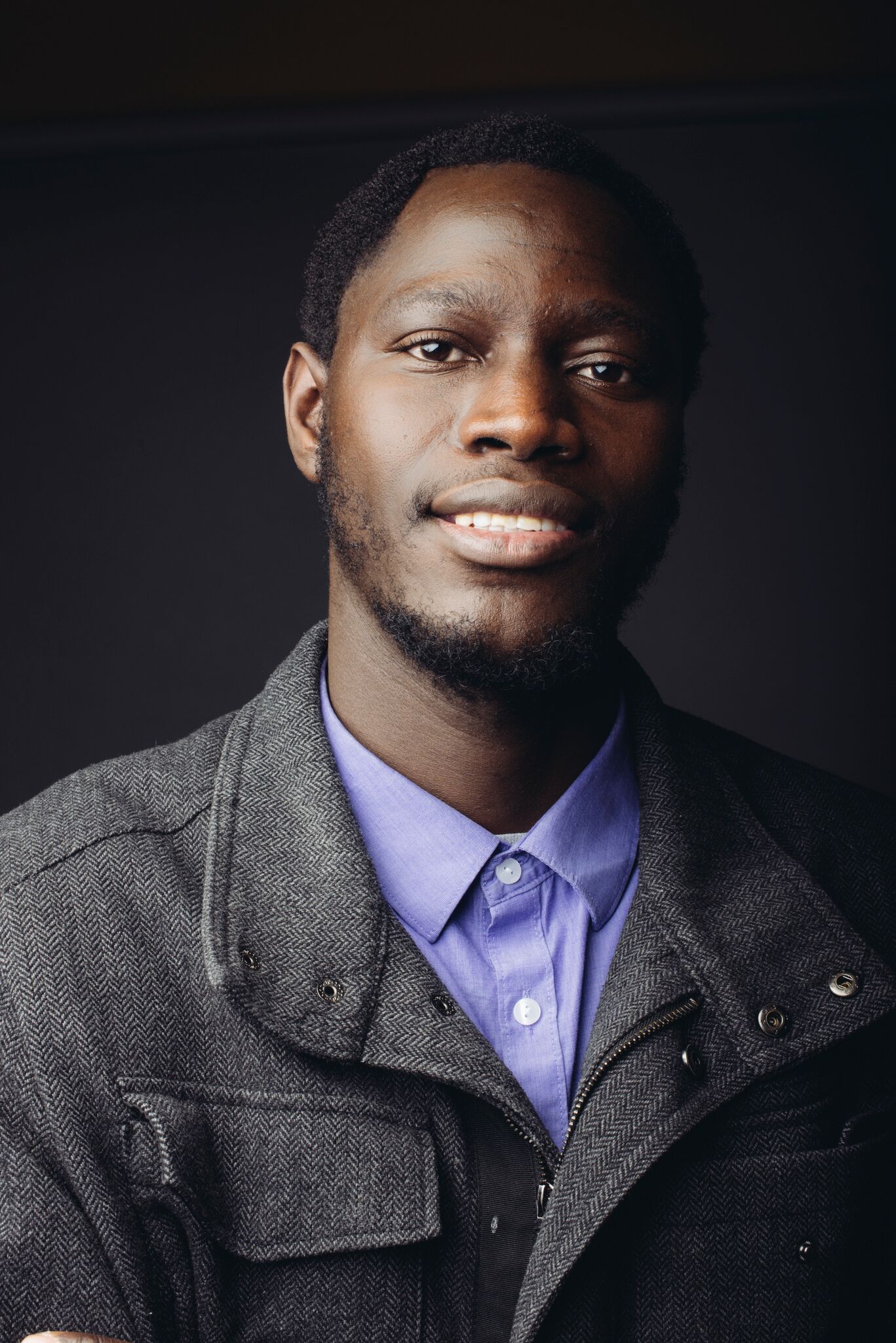 Macodou FallEmail | Dr. Macodou Fall holds a PhD from the University of Florida, a B.A and an M.A in English from Cheikh Anta Diop University in Dakar and a M.A in African Studies from Ohio University. Macodou is interested in the study of Islam, Ajami literature, traditional religions, and popular culture in West Africa with a focus on the Senegalese Sufi Brotherhood, Muridiyya. His research project seeks to explore the Murid urban associations’ (Dahiras) various teaching methodologies, which also include singing, praise singing, and the interpretation of Murid texts (qasidas) via use of Wolofal (Ajami Wolof). Macodou is fluent in Wolof, French, and English and has taught Wolof at Ohio University. |
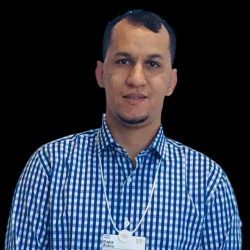 Baba AdouEmail-personal website | Baba Adou is a PhD candidate in the Department of Political Science and a Graduate Research Assistant at the Sahel Research Group. Prior to joining UF, Baba worked as an instructor at both the University of Nouakchott and the Higher Institute of English in Mauritania. He taught General and Business English, Arabic, and International Relations. While in Mauritania, he was also involved in several research projects including "Oral History in Northwest Africa", a project carried out by Columbia University's Institute for Religion, Culture and Public Life. He also worked as a translator, TOEFL Test auditor, and education entrepreneur. He holds a B.A. in English from the University of Nouakchott and an M.A. in Global and International Studies from the University of Kansas. He is also a certified TEFL instructor with a Cambridge CELTA. His research interests include Islam and politics, democratization, and the dynamics of semi-authoritarian regimes in the Sahel. Baba has a solid foundation in classical Arabic literature and Islam. He is also an alumnus of the Fulbright Program. Languages: Arabic, English, French |
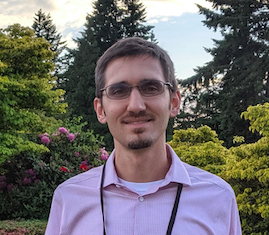 Bill DyerEmail - personal website | Bill Dyer is a PhD student in linguistics at the University of Florida. In his research, he works with native speakers of the Sereer, Wolof, and Pulaar languages of Senegambia to investigate the grammar of these languages. Bill has been awarded a Boren Fellowship to study intensive Wolof, followed by six months of linguistic research on Sereer and related Senegalese languages, in collaboration with professors at the Université Cheikh Anta Diop de Dakar. He served in the US Peace Corps in Senegal. He graduated from the College of Charleston with a BA in Anthropology and completed an MA degree in linguistics at the University of Iowa. |
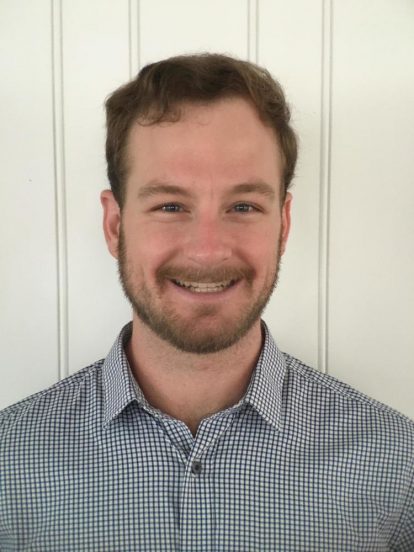 David RussellEmail | David Russell is a PhD candidate in Geography at the University of Florida, advised by Dr. Walther. David has previously worked as a geographer of political violence, focusing on describing the patterns and effects of conflicts in the Middle East and North and West Africa. He most recently worked as a Senior Research Specialist at the Bridging Divides Initiative at Princeton University. David has also worked on projects with the Middle East Institute, the University of Idaho, the Organization for Economic Cooperation and Development, and the University of Florida. David also maintains a strong interest in how geopolitical rhetoric shapes views of the world. A native of Atlanta, Georgia, David graduated from Middlebury College with a BA in History, and from the University of Idaho with an MS in Geography. |
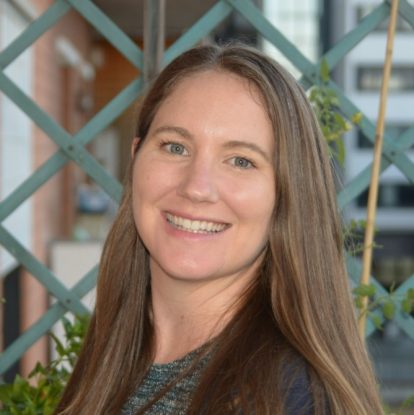 Lacey Harris-CobleEmail - Personal website | Lacey Harris-Coble is a Ph.D. student in the Department of Geography at the University of Florida. She is interested in agricultural development and food security. Her research will focus on livestock trade networks in West Africa and study how external shocks such as border closures, disease outbreaks, droughts and other climatic factors affect regional trade activities. She holds a Bachelor of Arts from Columbia and a Master of Sustainable Development Practice from the University of Florida. Previously she was a project and research assistant at the Feed the Future Innovation Lab for Livestock Systems. |
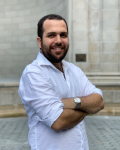 Daniel AcostaEmail | Daniel Acosta is a PhD student in Public Health with a concentration in One Health at the Department of Environmental and Global Health at the University of Florida (UF). He is an Industrial Engineer and holds a Master of Sustainable Development Practice from UF. He has done research in the context of livestock vaccine value chains with pastoralist communities. He also did an internship at the Sahel and West Africa Club Secretariat at the Organization for Economic Cooperation and Development (OECD) where his work was focused on climate change policies. He is interested in the impacts of climate change in health, through a One Health lens (human, animal, and environmental health). |
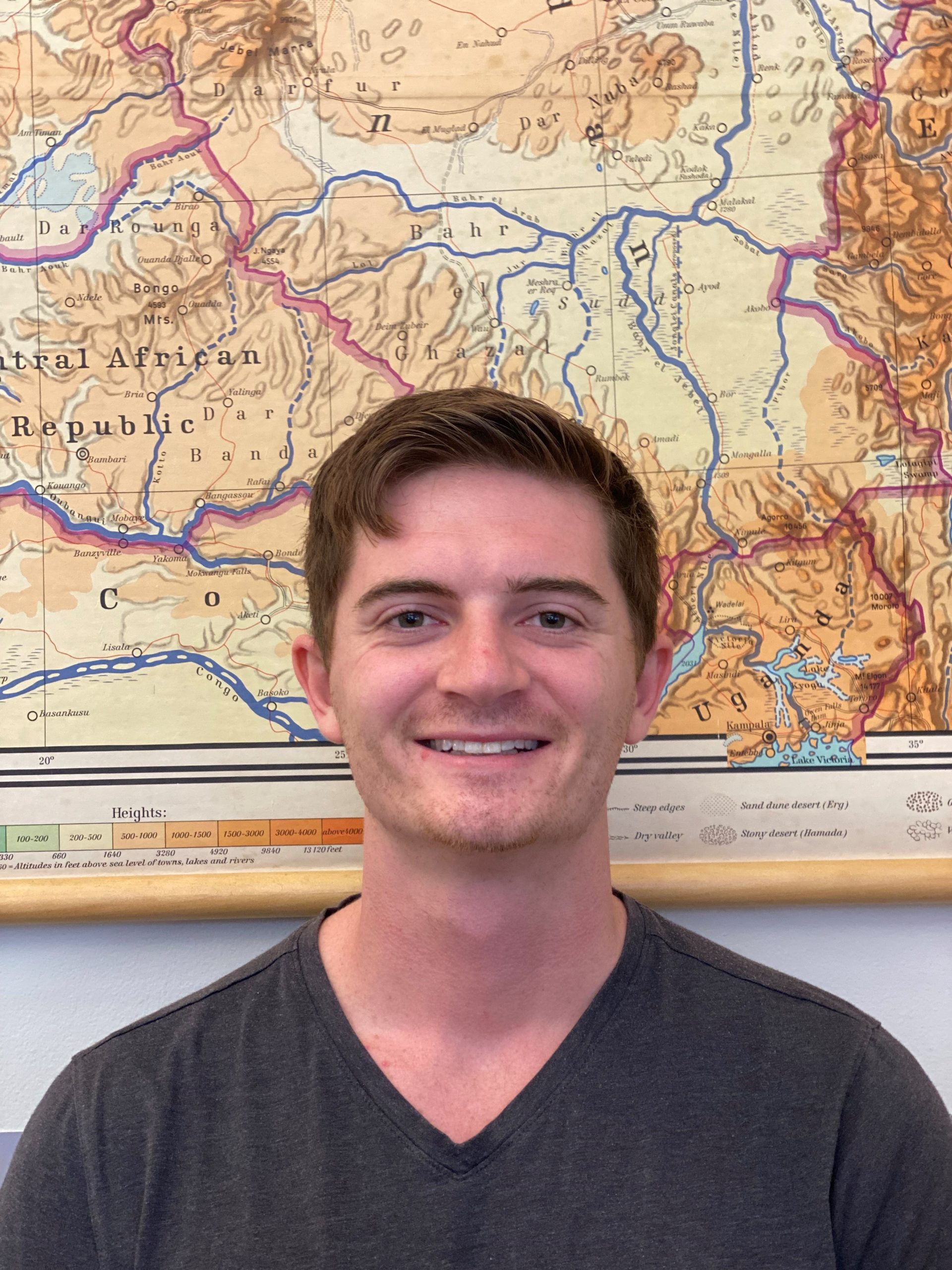 Cory SatterEmail | Cory Satter is a PhD candidate in the Department of Political Science. Cory obtained his B.S. in Political Science at Arizona State University and his M.A. in International Cooperation on Human Rights at the University of Bologna in Italy. Cory's thesis explored the nexus between security, migration, and development in Mali. An urbanism enthusiast, Cory is currently researching the political ecology of urban flooding in Sahelian capitals. Other research interests include existentialist political psychology, political and violent extremism, and psychogeography. He enjoys traveling and learning new languages and speaks Italian, French, Arabic, and Portuguese. |
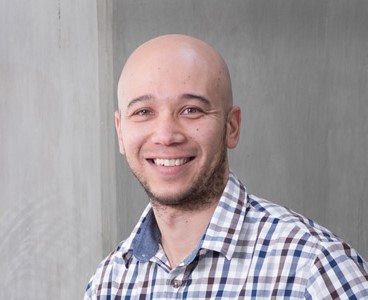 Damian OakesEmail | Damian Oakes is a PhD student in the Department of Anthropology at the University of Florida. Damian holds a Masters in Sustainable Development (MDP) Practice (UF), a Masters in Interpreting and Translation (University of Pretoria), an BA Honours degree in French (University of Kwa-Zulu Natal) and a bachelor’s degree in French and Political Science (University of Kwa-Zulu Natal). Prior to obtaining his MDP, Damian worked for the International Organization for Migration in South Africa. Damian’s current research centers on understanding perceptions of and responses to the Spain-Senegal migration policy by considering how hope of sending remittances and escaping social death are driving factors of human migration to the global north. Damian speaks fluent English, advanced French, intermediate Afrikaans and Arabic, basic Spanish and Zulu. He is a FLAS fellow for Arabic language. |
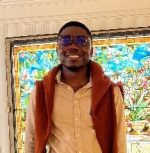 Lawrence FletcherEmail | Fletcher Lawrence is a PhD student in Cultural Anthropology at the University of Florida, advised by Dr. Brenda Chalfin and Dr. Abdoulaye Kane. He is a Community Development Practitioner and holds a BA. from the University for Development Studies, Ghana. He obtained his master's in Sustainable Rural Transformation from the Abdou Moumouni University of Niamey, Niger. He has previously secured funding from the Foreign and Commonwealth Development Office to implement his project with rural women farmers to enhance climate-resilient food systems in Niger. His current research aims to strengthen regional migration policy by exploring care negotiation among migrants stuck in prolonged transit in the Sahel. |
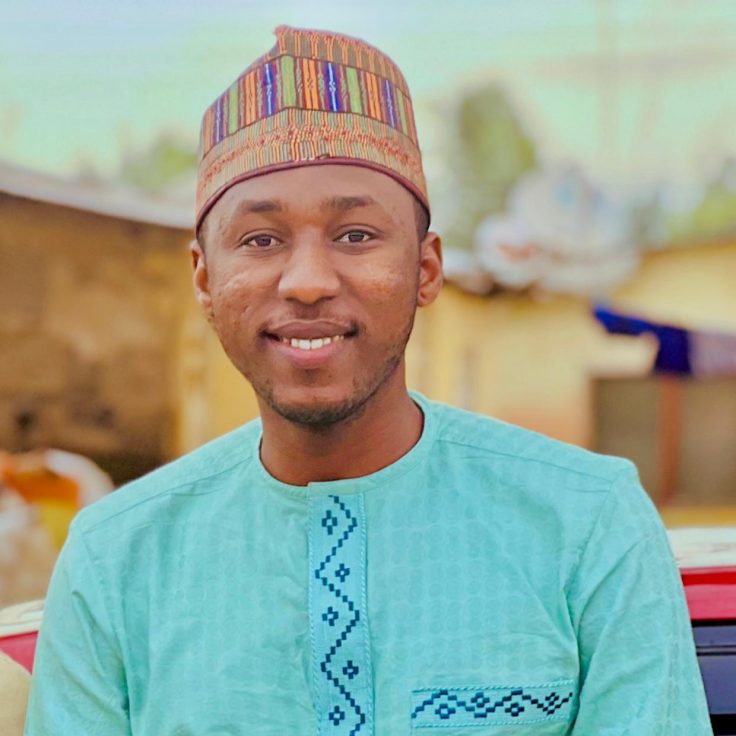 Mohammed SandaEmail | Mohammed Sanda is Ph.D. student in the UF Geography Department starting in Fall 2025. Prior to joining UF, he worked directly on conflict resolution initiatives, including leading mediation efforts between Fulanis and the locals on behalf of Ghana’s Ministry of National Security in Northern and Middle belt of Ghana. He holds a MPhil in Geography from the University of Education, Winneba in Ghana. His research seeks to model the spread of armed conflict from the Sahel to the Gulf of Guinea, with the goal of identifying regions most vulnerable to future violence. Mohammed is fluent in English, Pulaar, Hausa and Twi. |
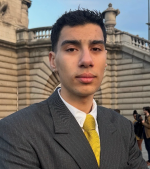 Farès DavionEmail | Farès Davion is a PhD candidate in Political Science starting in Fall 2025. He holds a B.A. in Politics and Government and an M.A. in International Security, both obtained at Sciences Po Paris. He is interested in the post-coup situation and wrote his master’s thesis about the Confederation of Sahelian States and the civilians’ narratives and inclusion while being a visiting research fellow at the CEDEJ, a French research center based in Cairo, Egypt. In this context, he wishes to investigate different perspectives including the role of chieftaincies or religious brotherhoods. His interests include the impact of cyberspace on politics, a subject he discovered during his experience as a political and influence analyst in Dakar, Senegal for the French Armed forces. |
| Back to Top |
Research Associates
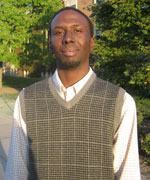 Oumar BaEmail- Personal website | Oumar Ba is an Assistant Professor in the Department of Government at Cornell University. He is as former Assistant Professor of Political Science at Morehouse College. He received his Ph.D. in Political Science from the University of Florida in 2017. He also holds a M.A in political science from the University of Florida, a M.A. in political science from Ohio University, a M.A. in African Studies from Ohio University, a B.A. in international studies from The Ohio State University, and a B.A. in Geography from Université Cheikh Antra Diop in Dakar. His research focuses on the politics of international justice, the global governance of atrocity crimes, and the destruction of cultural heritage in conflict. Languages: Pulaar, Wolof, French, and English. |
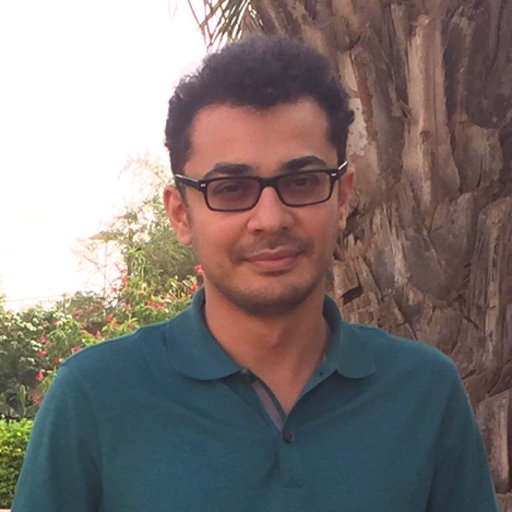 Adib BencherifEmail - Personal website | Dr. Adib Bencherif is an Assistant Professor in political science at the University of Sherbrooke in Canada. He served as a Postdoctoral Fellow with the Sahel Research Group at the University of Florida. Adib holds a B.A. from the School of International Relations in Paris, an M.A. in International Relations from Laval University and a Ph.D. in Political Science from the University of Ottawa. His research focuses on security issues and political violence in the Sahel, with a focus on the narratives and representations of Tuareg political elites in Mali and Niger. He is the author of several peer-reviewed articles published in Terrorism and Political Violence, Mediterranean Politics, The Canadian Journal of African Studies, Cahiers d'études africaines and Politique Africaine. He is fluent in French and English and proficient in Spanish, Arabic and Tamashek. |
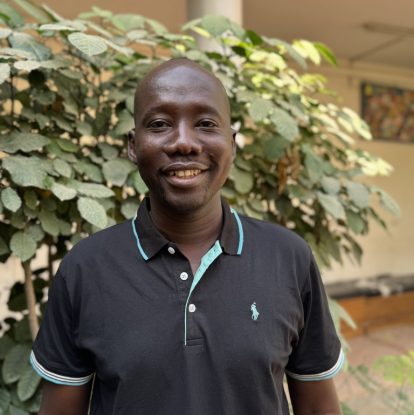 Yamingué BétinbayeEmail | Yamingué Bétinbayeis a senior researcher and analyst at the Centre de Recherches en Anthropologie et Sciences Humaines (CRASH) in N'Djaména, Chad. He also teaches at the University of N'Djaména and the University of Moundou. He has carried out research on various topics including security and political dynamics in Chad, and serves as CRASH focal point for monitoring the Chadian political process. He is Chad team leader on the SRG project on Social & institutional determinants of vulnerability & resilience to climate hazards in the Sahel. |
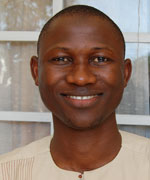 Mamadou BodianEmail- Personal website | Mamadou Bodian is a researcher at the Laboratoire d'Études Sociales of the Institut Fondamentale d'Afique Noire (IFAN) at Cheickh Anta Diop University in Dakar (UCAD). He holds a master's degree in sociology from UCAD and a Ph.D. in political science from the University of Florida. Dr. Bodian teaches sociology of religions at the University Assane Seck of Ziguinchor and political sociology at UCAD. He was the coordinator of the Fulbright Support Services Program in West Africa, based at the West Africa Research Center (WARC) in Dakar. A founding member of the Sahel Research Group (SRG), Dr. Bodian was a researcher in the Sahel and West Africa program of the Stockholm International Peace Research Institute (SIPRI) in Sweden. He has been serving as an expert for Freedom House, Variety of Democracy, and Afrobarometer. His research focuses on religion, politics, foreign policy, and security in the Sahel. He is the author of several articles and co-author of the book Entre le Savoir et le Culte: Activisme et mouvements religieux dans les universités du Sahel. Amalion, 2020. |
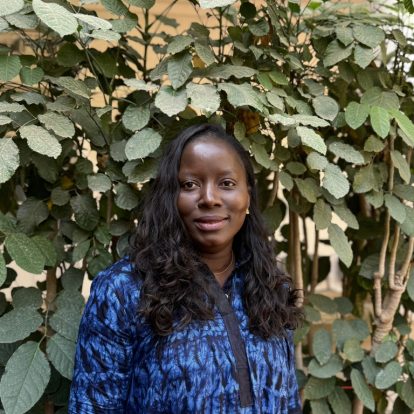 Ndeye Sokhna CisséEmail | Ndeye Sokhna Cissé is a socio-economist at the Laboratoire de Recherches sur les Transformations Economique et Sociale, of the Institut Fondamental d’Afrique Noire Cheikh Anta Diop in Dakar, Senegal (LARTES-IFAN). She has a particular interest in issues relating to nutrition, health, education and poverty, as well as in measuring the impact of innovations. Sokhna's academic training and extensive field research have enabled her to become a specialist in both quantitative and qualitative studies in the field of development research. She is Senegal team co-leader on the SRG project on Social & institutional determinants of vulnerability & resilience to climate hazards in the Sahel. |
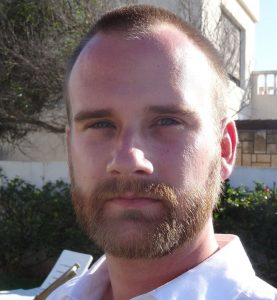 Daniel EizengaEmail- Personal website | Daniel Eizenga is a Research Fellow at the Africa Center for Strategic Studies based at the National Defense University in Washington D.C. At the Africa Center, he is responsible for conducting policy-relevant research advancing understanding of pressing security challenges facing Africa. His research primarily focuses on countering violent extremism in the Sahel and the intersecting roles of civil-military relations, traditional institutions, and civil society across various regime trajectories of African states. Prior to joining the Africa Center, he was a postdoctoral fellow with the Centre FrancoPaix at the Université du Québec à Montréal and a Research Associate with the Sahel Research Group. He has presented his research to and collaborated with the Canadian Forces College, the Joint Special Operations University, Special Operations Command Africa, the Royal Military College in St. Jean, the George C. Marshall Center, the United States Institute of Peace, and Defense Language Institute Foreign Language Center. He holds a PhD in Political Science from the University of Florida and he has conducted extensive fieldwork in the Francophone African Sahel, primarily in Burkina Faso, Chad and Senegal. |
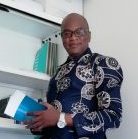 Azizou A. GarbaEmail | Azizou Abdoul Garba was Deputy Director of Niger’s National Center for Strategic and Security Studies (CNESS). Azizou received his B.A. in Political Science from Ahmadu Bello University of Zaria, Nigeria. He holds an M.A from the Catholic University of Louvain, Belgium. Azizou is currently a Ph.D. candidate with the Centre for International Crisis and Conflict Studies (CECRI) at UC Louvain. His research focuses on the effects of terrorism on state building in the Sahel. Azizou was a Technical Advisor to Niger's Ministry of Affairs from 2013 to 2016 and an independent consultant on issues of political governance and civil society participation in state management. He is a founding member of the Casablanca Club and the African Research Center on Global Challenges (ARCC). |
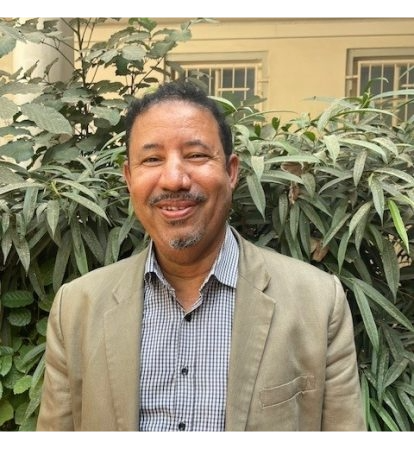 Moustapha Taleb HeidiEmail | Moustapha Taleb Heidi is a sociologist of health and development and Researcher affiliated with the Centre d’Etudes et de Recherches sur l’Ouest Saharien (CEROS) in Nouakchott, Mauritania. He has extensive research experience on health and development issues in among nomadic people in the Sahel (Mauritania, Mali and Chad), as well as on artisanal mining and agricultural issues. He has worked for the FAO as a national expert on Mauritania. Moustapha is Mauritania team leader for our SRG project on Social & institutional determinants of vulnerability & resilience to climate hazards in the Sahel. |
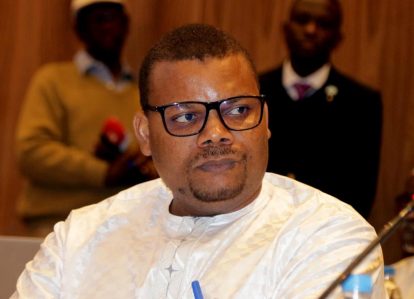 Ibrahim Yahaya IbrahimEmail- Personal website | Ibrahim Yahaya Ibrahim is Deputy Director based in Dakar of the Sahel Project of the International Crisis Group. His work covers Niger, Mali, and Burkina Faso. He received his Ph.D in Political Science from the University of Florida, where he was also a research assistant for the Minerva Initiative project on Institutional reform, social change and stability in the Sahel. His research interests relate to political economy, Islam, and humanitarianism in the Sahelian countries. He has a background in Sociology, Islamic Jurisprudence, and Management, with degrees from the Islamic University of Say and Abdou Moumouni University of Niamey. Ibrahim is also an alumnus of the Fulbright Program. He worked for four years with Islamic NGOs in Niger, including two years as the Executive Director of the Niger-office of Albasar International Foundation. He is a co-founder of the NGO Project Global Health. Languages: French, English, Arabic, and Hausa. |
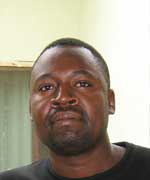 Abdourahmane IdrissaEmail- Personal website | Abdourahmane Idrissa is Senior Researcher in the African Studies Centre at the University of Leiden in the Netherlands. His doctorate in political science, with a concentration on democratization and political Islam in Africa, was obtained at the University of Florida. Idrissa’s research expertise ranges from issues of states, institutions and democratization in Africa to Salafi radicalism in the Sahel and current projects on the history of state formation in Africa, with a focus both on the modern (Niger) and premodern eras (Songhay). Idrissa is the founder of EPGA a think tank in political economy in Niger, training students and coordinating projects based on methodologies of political economy analysis focused on migration, youth employment and demography. He is also associated with the Niamey based social science laboratory LASDEL and is on the editorial board of the African Studies Quarterly, at the University of Florida. He is the author of the book The Politics of Islam in the Sahel : Between Persuasion and Violence (Routledge, 2017). Together with Samuel Decalo he has recently published a completely new edition of the Historical Dictionary of Niger. |
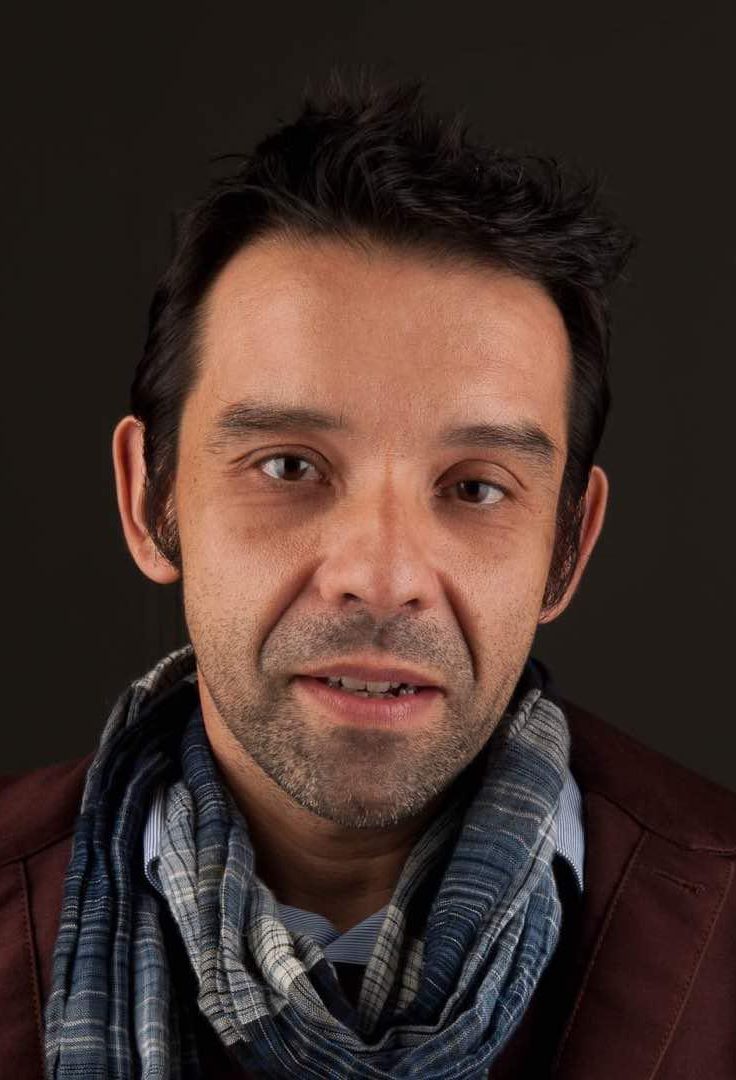 Jean-Hervé JézéquelEmail | Jean-Hervé Jézéquel is the Project Director for the Sahel at the International Crisis Group based in Dakar, Senegal, since 2013. His role requires extensive research and advocacy on the prevailing political and security issues in the central Sahel region in order to work towards promoting stability, security, and development. He has authored numerous reports and publications on violent conflicts in the central Sahel region. Jean-Hervé Jézéquel holds a PhD in African History from the Ecole des Hautes Etudes en sciences Sociales (EHESS) in Paris. He taught at the University of Michigan, Emory University and the University of Bordeaux. Jean-Hervé also worked for Doctors without Borders as field coordinator in Northern Liberia as well as Researcher and Research Director. He conducted studies on post-conflict situations (DRC, Liberia) as well as on Humanitarian interventions in complex crises (Ethiopia, Niger, Guinea). He co-authored a book on the food nutrition crisis with Xavier Crombé (Columbia University Press, 2009). |
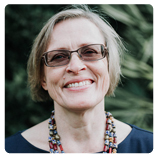 Marjatta EilittäEmail | Marjatta Eilittä is the Deputy Director for the Feed the Future Innovation Lab for Livestock Systems. She received her Ph.D. in Agronomy with a minor in Food and Resource Economics from the University of Florida. Her research was on soil fertility and green manures in tropical smallholder systems. She consequently worked 12 years in agricultural development in West Africa, mainly from a base in Ghana, but with regional responsibilities, including in the Burkina Faso, Niger, Mali, Northern Nigeria, and Senegal. Her work covered soil fertility, crop production and inputs, national and regional policies, and value chain development. From 2011 to 2013 she led a USAID-funded project on regional trade in staple commodities and livestock, which sparked her interest in trade networks and corridors as well as the neglected role of regional trade, particularly between the Sahel and the coastal countries, in the regional food security. |
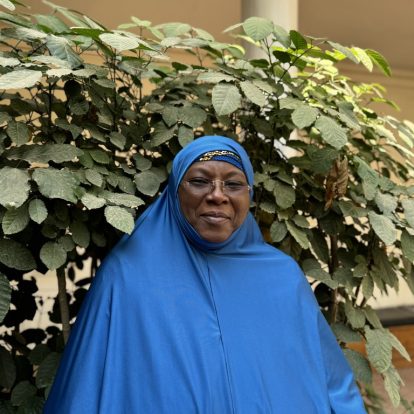 Nana Aichatou IssaleyEmail | Nana Aichatou Issaley is a socio-anthropologist at the University André Salifou of Zinder in Niger and reseacher in the Laboratoire d’Etudes et de Recherches sur les Dynamiques Sociales et le Développement Local (LASDEL) in Niamey. She completed her Ph.D. at the Ecole des Hautes Etudes en Sciences Sociales EHESS in Marseille, France. Her academic interests include merchandising of natural resources, pastoralism, food insecurity, health, family planning, forced migrations, and gender studies. She is Niger team co-leader on the SRG project on Social & institutional determinants of vulnerability & resilience to climate hazards in the Sahel. |
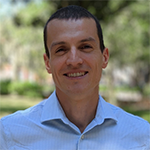 Frédérick MadoreEmail - Personal website | Frédérick Madore is a Research Fellow at Leibniz-Zentrum Moderner Orient (ZMO) in the Religion, Morality and Boko in West Africa project. Frédérick was previously a Banting Postdoctoral Fellow at the Center for African Studies at the University of Florida. He completed his PhD in History at the Université Laval (Canada) in 2018. His research is comparative and explores Islam and Muslim societies in postcolonial francophone West Africa. He has conducted extensive fieldwork in Burkina Faso, Côte d’Ivoire, Benin, and Togo, focused on Islamic activism among youth and women, their appropriation of (new) media, and Muslim politics. Madore is developing an innovative digital archive database containing archival materials, newspaper articles, Islamic publications, photographs, and bibliographical references related to Islam in Burkina Faso. He is also the author of La construction d’une sphère publique musulmane en Afrique de l’Ouest (Presses de l’Université Laval/Hermann, 2016) on Islam in Burkina Faso. |
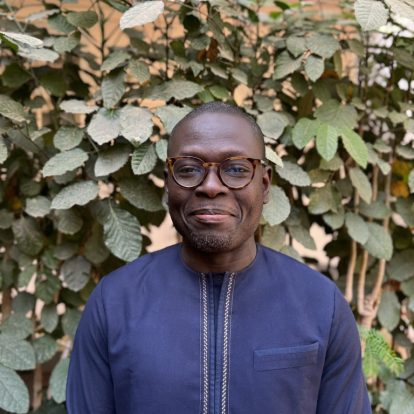 Moustapha SèyeEmail | Moustapha Sèye is a socio-anthropologist and researcher at the Laboratoire de Recherches sur les Transformations Economique et Sociale, of the Institut Fondamental d’Afrique Noire Cheikh Anta Diop in Dakar, Senegal (LARTES-IFAN). He specializes in research on the environment and sustainable development. He has a particular interest in entrepreneurship, environmental governance, and the sociology of food. He has worked extensively on issues relating to food and nutrition security, cash transfers, and resilience at the national level and in the sub-region. He is Senegal team co-leader on the SRG project on Social & institutional determinants of vulnerability & resilience to climate hazards in the Sahel. |
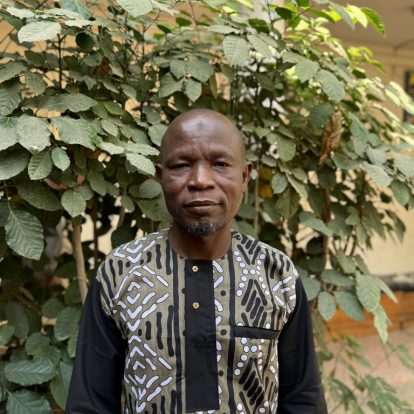 Bassirou Malam SouleyEmail | Bassirou Malam Souley is a researcher and lecturer of human geography in the Department of Geography of the University André Salifou of Zinder in Niger. Bassirou’s research and academic interests focus on migration, pastoralism, climate change, and geographic information systems (GIS). He is Niger team co-leader on the SRG project on Social & institutional determinants of vulnerability & resilience to climate hazards in the Sahel. |
| Back to Top |
Staff
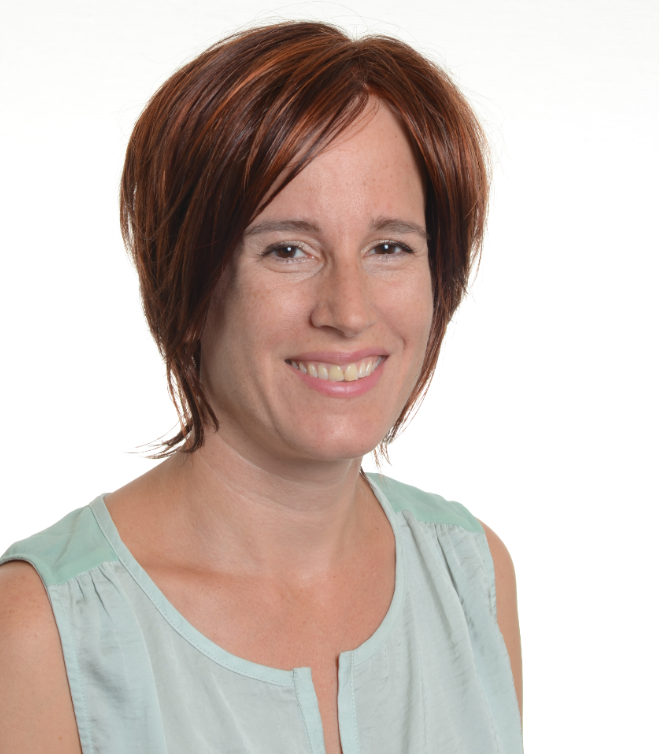 Isabelle Walther-DucEmail | Isabelle Walther-Duc is Program Assistant at the Sahel Research Group. She is in charge of the communication of the Sahel Research Group including publishing of the weekly newsletter, social media and updating SRG’s website. Isabelle holds a Master in Sociology from the University of Lausanne in Switzerland and a Master in European Studies from the University of Southern Denmark. In her previous jobs, Isabelle has worked as social worker, office manager and French teacher. Isabelle’s interests lie in international issues and global dynamics. Her interest for Africa started when, as a student, she regularly traveled to Africa in countries such as Morocco, Mauritania, Niger and Mali. These travels as well as the various countries where she subsequently lived allowed her to develop her multicultural and interpersonal competencies. Languages: French, English, German and Danish (elementary knowledge). |
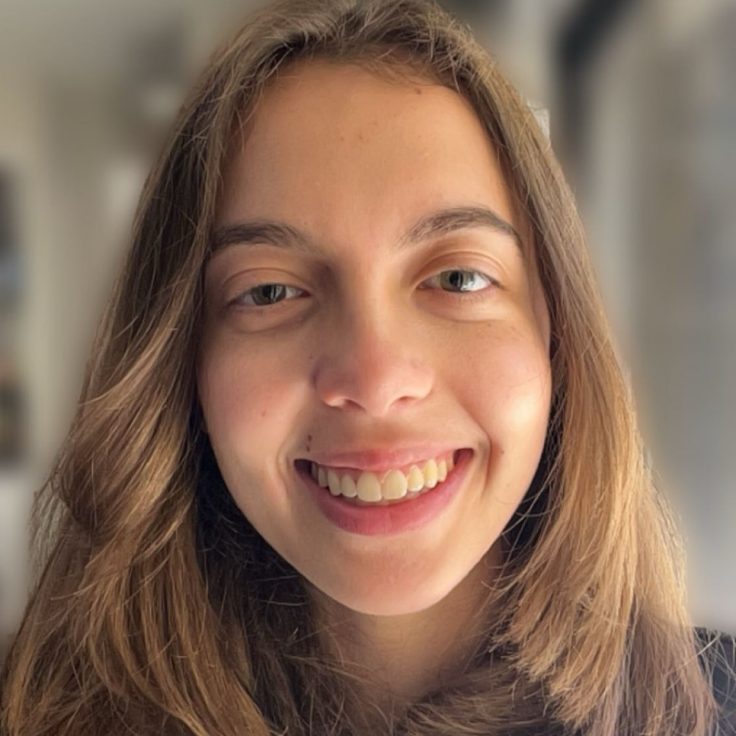 Victoria Simoni AssuncaoEmail | Victoria Simoni Assuncao is a Program Assistant for the Sahel Research Group. She is a UF student majoring in Medical Geography in Global Health and minoring in French and Francophone Studies and Sociology. Victoria is an ambassador for the Center for African Studies and collaborates on research projects investigating the relationship between climate change and health in the Sahel as a member of the McKune Lab in the Department of Environmental and Global Health. She also acts as a Director of Medical Services for the non-profit, Gators for Refugee Medical Relief, which allocates clinical and educational resources to migrant and refugee families in North Florida and advocates for inclusive state and federal policies. Using her fluency in Portuguese, Spanish, and French, Victoria aims to work directly with communities to improve nutritional and health outcomes and combat global health disparities. |
| Back to Top |
Our Network
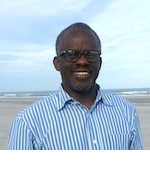 | Mamadou Cissé is a researcher and teacher in the Department of Linguistics at Cheikh Anta Diop University in Dakar, He was a visiting scholar with the Sahel Research Group in 2015. |
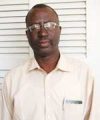 | Gueladio Silli Diabira is professor of Public Law in the Faculty of Legal and Economic Sciences of the University of Nouakchott and Conseiller Juridique in the Mauritanian Ministry of Higher Education and Scientific Research. He served as country coordinator for Mauritania for the SRG’s Trans-Saharan Elections Project. |
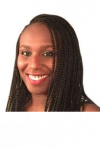 | Awa Doucoure is a lecturer and researcher at the Université Virtuelle du Sénégal. She was a World Bank Robert S. McNamara visiting fellow with the Sahel Research Group from April 2017 to January 2018 while carrying out research on the definition and implementation of public policies in the education sector. |
 | Ismaïla Madior Fall a professor of Law at the Université Cheikh Anta Diop in Dakar and former Minister of Justice of Senegal. He participated in the SRG project on democracy and state reform and contributed to the book Democratic Struggle, Institutional Reform, and State Resilience in the African Sahel. |
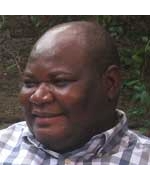 | Ladiba Gondeu is a Chadian social anthropologist at the University of N'Djamena with research interests in interreligious relations Chadian political sociology. He spent the Spring 2013 semester as a visiting scholar with the Sahel Research Group. |
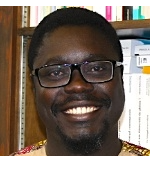 | Jean Alain Goudiaby is a sociologist and professor at the Université Assane Seck de Ziguinchor (Senegal) with research interests in higher education policy in Africa, academic mobility, university governance, and pedagogy. He was an SRG visiting scholar 2015. |
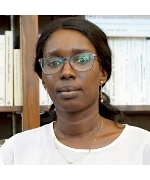 | Fatoumata Kiné Hane is a social anthropologist at the Université Hassan Seck de Zinguinchor, Senegal, with a specialization in health and medical anthropology. She works primarily on questions of gender-based violence in conflict settings in Africa. She was a visiting scholar with the Sahel Research Group in 2013 and again 2015. |
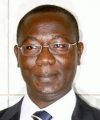 | Augustin Loada is Professor and former Dean in the Faculty of Public Law and Political Science at the University of Ouagadougou, Burkina Faso. He is founding director of the Centre pour la Gouvernance Démocratique (CGD). From 2014-15 he served as Minister of Public Service in the transitional government of Burkina Faso. He participated in the SRG project on democracy and state reform and contributed to the book Democratic Struggle, Institutional Reform, and State Resilience in the African Sahel. |
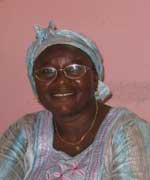 | Thérèse Mekonbé is a jurist and civil administrator by profession and President of l’Association des Femmes Juristes du Tchad (AFJT). She served as country co-coordinator for Chad for the SRG’s Trans-Saharan Elections Project. |
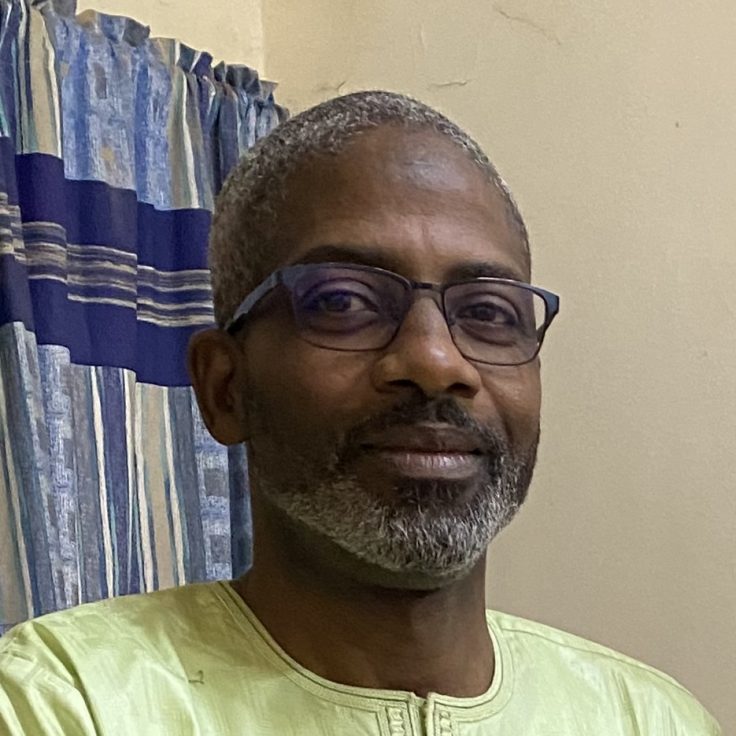 | Hamani Oumarou is an anthropologist of the state, faculty member at the Université Abdou Moumouni in Niger, and Scientific Director of Laboratoire d’Etudes et de Recherches sur les Dynamiques Sociales et le Développement Local (LASDEL). He served as country coordinator for Niger for the SRG’s Trans-Saharan Elections Project |
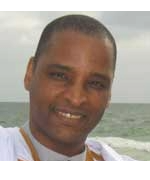 | Zekeria Ould Ahmed Salem is Associate Professor of Political Science at Northwestern University, Director of the Institute for Study of Islamic Thought in Africa. He was the first Mauritanian scholar to be receive a U.S. Fulbright Senior Scholar Fellowship to the University of Florida in 2012-2013. He participated in the SRG project on democracy and state reform and contributed to the book Democratic Struggle, Institutional Reform, and State Resilience in the African Sahel. |
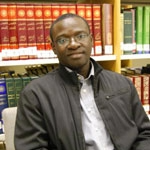 | Bakary Sambé is a Lecturer and Researcher in the Center for the Study of Religion of the Université Gaston Berger in Saint-Louis, Senegal, and Executive Director of the Timbuktu Institute, African Center for Peace Studies. Sambe is an expert on preventing and countering violent extremism across the Sahel, He was a visiting scholar with the Sahel Research Group in 2014. |
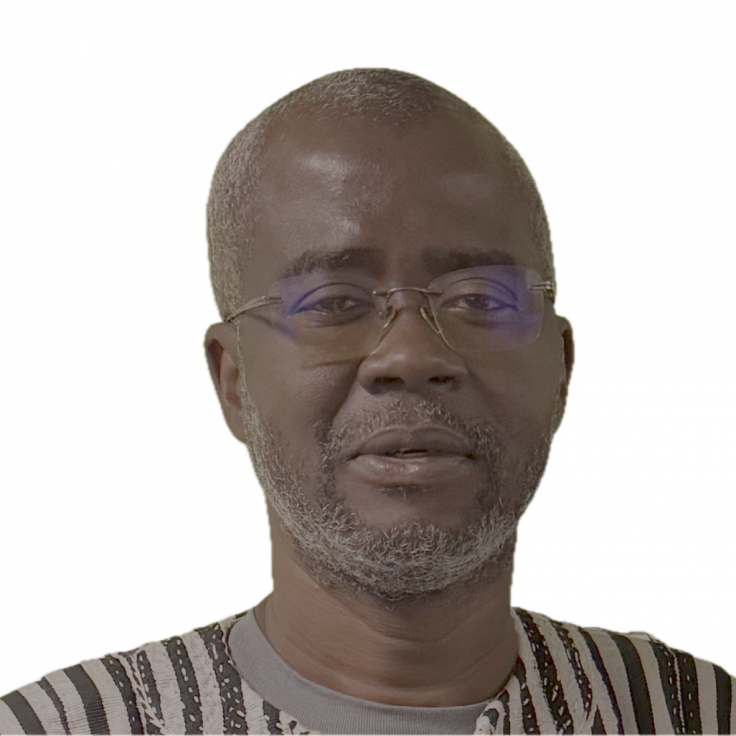 | Abdoul Karim Sango is a professor of Law at the Ecole Nationale d’Administration et de Magistrature (ENAM) in Ouagadougou and former Minister of Culture of Burkina Faso. He served as country coordinator for Burkina Faso for the SRG’s Trans-Saharan Elections Project. He was also a visiting scholar with the SRG in 2024 |
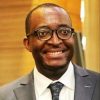 | Moumouni Soumano is Executive Director of the Centre Malien pour le Dialogue Interpartis et la Démocratie, and teaches Law and Political Science at the Université des Sciences Juridiques et Politiques in Mali. He participated in the SRG project on democracy and state reform and contributed to the book Democratic Struggle, Institutional Reform, and State Resilience in the African Sahel |
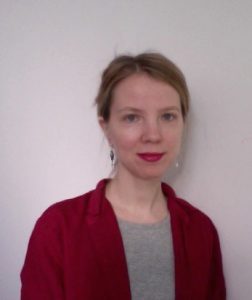 | Tatiana Smirnova served as a Research Assistant Scientist in the Department of Geography at the University of Florida in 2019-2020. She worked on the project "Foreign interventions and transnational insurgencies in the Sahara-Sahel" funded through the Sahel and West Africa Club at the OECD. |
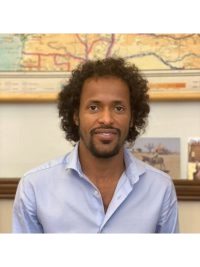 | Rhoumour Ahmet Tchilouta is a political geographer focused on migration and on informal mining in Niger. He holds a PhD in from the University of Grenoble Alpes and the University Abdou Moumouni of Niamey. He was a visiting scholar at the Sahel Research Group in 2023. |
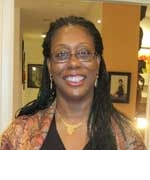 | Antoinette Tidjani-Alou is a professor of French and Comparative Literature at the Université Abdou Moumouni in Niamey, Niger. In 2011-2012, she was a senior Fulbright fellow at the University of Florida, affiliated with the Sahel Research Group. |
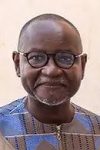 | Mahaman Tidjani Alou Professor of Political Science and former Dean at the University Abdou Moumouni in Niamey. He is a senior researcher and co-founder of the Laboratoire d'Etudes et de Recherche sur les Dynamiques Sociales et le Développement Local (LASDEL). He has served as political advisor to the Prime Minister and President of Niger, as well as on the commission that drafted the 2010 Constitution for the 7th Republic. He participated in the SRG project on democracy and state reform and contributed to the book Democratic Struggle, Institutional Reform, and State Resilience in the African Sahel |
 | Lucien Toulou is currently Governance and Rule of Law Advisor for the United Nations Development Programme (UNDP) in Central African Republic (CAR). He previously served as Chief Technical Advisor for Elections with UNDP in Chad and as Chad Country Director with the Electoral Institute for Democracy in Africa (EISA). He participated in the SRG project on democracy and state reform and contributed to the book Democratic Struggle, Institutional Reform, and State Resilience in the African Sahel. |
| Back to Top |
Some of our institutional partners
The Sahel and West Africa Club | Signed in 2017, the memorandum of understanding between SWAC/OECD and the Sahel Research Group at the University of Florida aims to reinforce ties between research and policies in order to better anticipate changes in the Sahel and West Africa and promote West African expertise by strengthening links with African researchers and research centers. |
International Crisis Group | The International Crisis Group is an independent organization working to prevent wars and shape policies that will build a more peaceful world. |
CEROS | CEROS is a research center specialized in studying the western region. It is based in Nouakchott. |
LASDEL | LASDEL is a Nigerien and Beninese NGO founded in Niamey. |
CRASH | CRASH is a multidisciplinary research laboratory on development based in N'Djamena. |
LARTES | LARTES-IFAN of Cheikh Anta Diop University was founded following a collaboration with the Institut de Recherche et Développement (IRD) in Paris. |
Centre pour la Gouvernance Démocratique | The NGO Centre pour la Gouvernance Démocratique (CDG) aims to promote democratic governance in Burkina Faso and Africa through applied research, training, education and the facilitation of democratic dialogue. |
Université Catholique de Louvain | The Sahel Research Group was associated in a collaborative research project with Professor Michel Liégeois of UC Louvain on conflict, security, peace and development in Niger and the Sahel. |
Université des Sciences Juridiques et Politiques de Bamako | The USJPB is the fruit of a long evolution. It began as the École d'Administration du Soudan, established in 1958, which was renamed the École Nationale d'Administration (ENA) in 1963. It later evolved into the Faculté des Sciences Juridiques et Economiques, then the Faculté des Sciences Juridiques et Politiques, and ultimately became the Université des Sciences Juridiques et Politiques. |
| Back to Top |
Former Program Assistants: Isabelle Walther-Duc (2017-2025), Justine Decoster (2023-2024), Kylie Hay-Roe (2022-2023), Amandine Spencer Goncalves (2020-2022), Luke Whittingham (2019-2020), Emily Moore (2018-2019), Jordan McKenzie (2018), Chizoba Ezenwa (2016-2017), Heejin Ahn (2015-2016), Miriam Ngombe (2014-2015), Hashem Zenaty (2012-2015), Lia Merivaki (2011-2012) .